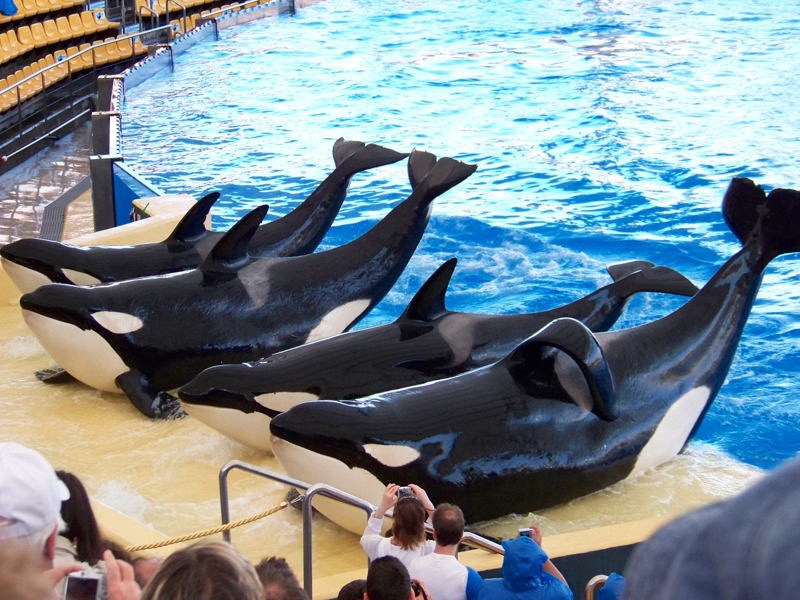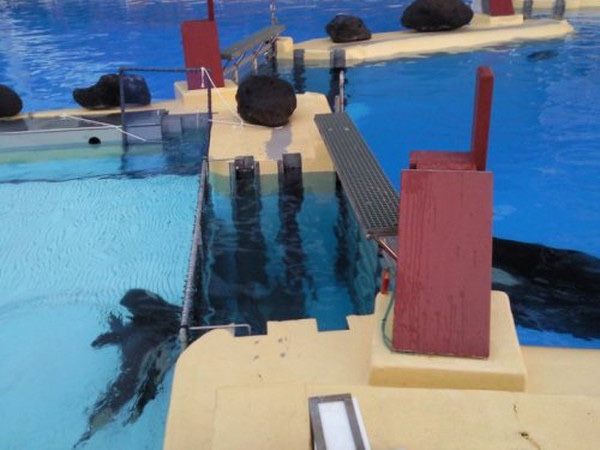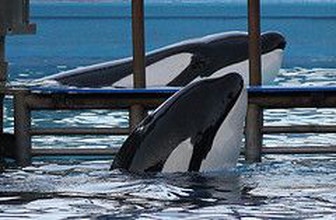Ever since the first orca was captured in 1961, the marine park industry has profoundly targeted resident orcas, perhaps due to their docile nature. Resident orcas typically travel in pods of 20-40 individuals, consisting of several matrilines and centered around older females, usually grandmothers or great-grandmothers. Each pod has its own distinct dialect of calls used for communication – some of these calls can be understood by multiple pods which cohesively form to create a clan. Individuals rarely disperse from their family pod other than for practical reasons, such as breeding or catering to their offspring’s needs, due to strong social bonds based on co-operation, co-ordination, communication, trust and acceptance.
In captivity, orcas from different pods, clans, communities, populations and even ecotypes are forced into tight quarters with one another. Unrelated and unable to understand each other’s calls, the rising tension can lead to serious cases of aggression, bullying and mutilation. With no common culture or social rules to prohibit such violence, orcas can receive serious injuries and even lose their lives in these hyper-aggressive artificial pods.
Despite mostly consisting of resident orcas, pod sizes in captivity more closely resemble that of transient (mammal-eating) pods which average between 2 and 6 individuals. Any social bonds which are formed in this artificial arrangement are often disrespected and broken as orcas from different family units are shipped from park to park for breeding and performance purposes. For example, in 2006, Keto, Tekoa, Skyla and Kohana were all separated from their families and sent to Loro Parque on breeding loan, despite all being under the age of six (except for Keto who was 10 at the time).

Photo submitted by Jason Lee Scott.
Even when family units have the industries privilege of being kept at the same facility; it’s very rare for them to be united with their complete pod as its members are frequently divided up into several tanks. Restricting highly sociable family-orientated animals to small artificial pods in this way can cause great distress which only adds to an inadequate social situation.

Photo via Softloftt (Tumblr).

Photo via Andrea Wilson (Pinterest).